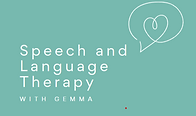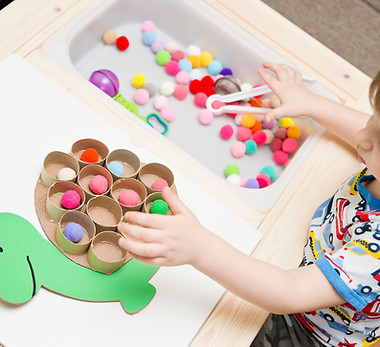

Who We Help
At Speech and Language Therapy with Gemma, we support pre-school children, through to teenagers, and young adults who experience a wide range of speech, language, and communication differences.
Our approach celebrates individual communication styles and supports each person to express themselves in ways that are authentic and empowering.
Find out a little more about communication differences, and how speech and language therapy can support your child below.
Attention and Listening

In speech therapy, we often support children with difficulties in attention and listening, as both are important for learning to communicate. Attention is the ability to focus on a task or person without getting easily distracted. Listening means more than just hearing – it’s about understanding what someone is saying. If a child struggles with either of these skills, it can affect how they learn language, follow instructions, or join in conversations. Our therapy sessions are tailored to help build both attention and listening skills to support confident communication.
Understanding Language

Some children find it hard to understand language – this means they might struggle to follow instructions, answer questions, or make sense of what others are saying. This can be linked to processing difficulties, impacting how quickly and clearly a child can take in and use language. These challenges can affect learning, confidence, and everyday interactions. Our therapy sessions help children develop strategies to understand language and communicate more confidently.
Expressive Language

Some children communicate differently and may find it harder to put their thoughts into words. This is known as a difference in expressive language. They might take longer to find the right words, use simpler sentences, or express ideas in a unique way. These differences can sometimes make it harder for others to understand them — which can be frustrating, even when they have a lot to say. Speech therapy can support children in building tools and strategies that help them express themselves in ways that work best for them. We focus on strengths, honour individual communication styles, and work together to support confident, authentic expression.
Speech Sounds

Some children develop speech sounds at their own pace and may pronounce words differently from others their age. This is often called a speech sound difficulty, but it’s really about differences in how sounds are learned and produced. A child might leave out sounds, swap them, or say them in a unique way. This can sometimes make their speech harder to understand. Speech therapy can support children in learning and practising sounds in a way that builds confidence and communication success. We celebrate every voice and focus on clear, functional speech.
Social communication and Interaction

Every child connects and communicates in their own unique way. Some children – including those who are autistic, have ADHD, or are otherwise neurodivergent – may experience differences in how they interact with others. They might find it challenging to read social cues, understand body language, take turns in conversation, or know how to join in with play. These are known as social communication and interaction differences, and they’re a natural part of how some neurodivergent brains process and engage with the social world. Speech therapy can offer support in navigating social situations in a way that feels safe, respectful, and true to each child’s identity. We focus on building meaningful connections, supporting self-advocacy, and valuing each child’s preferred communication style.